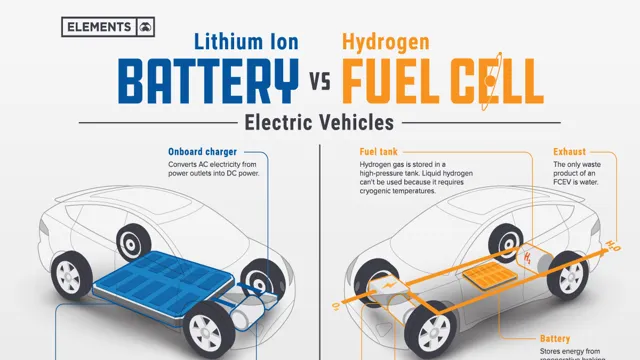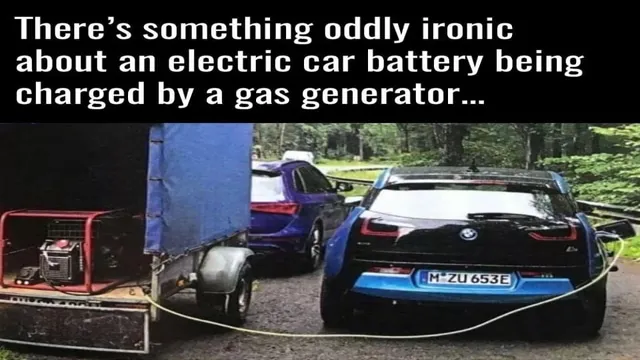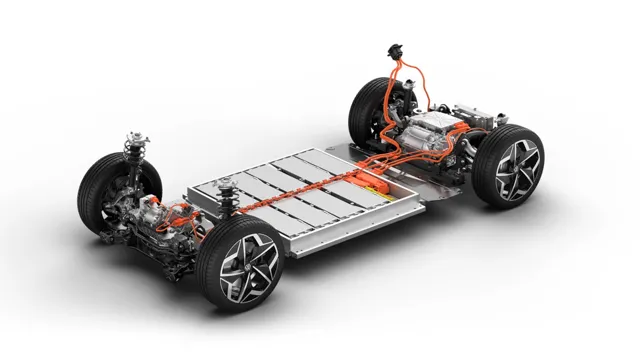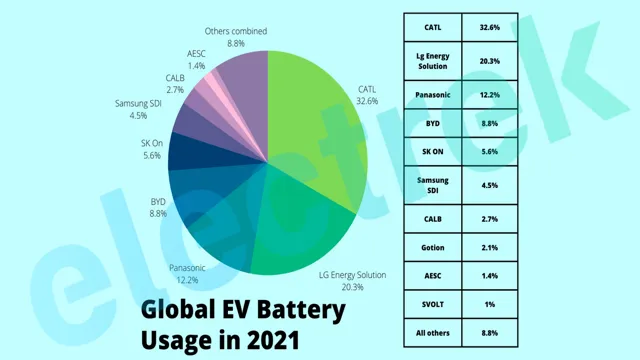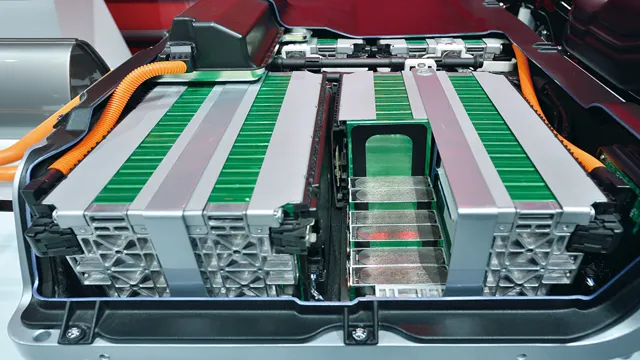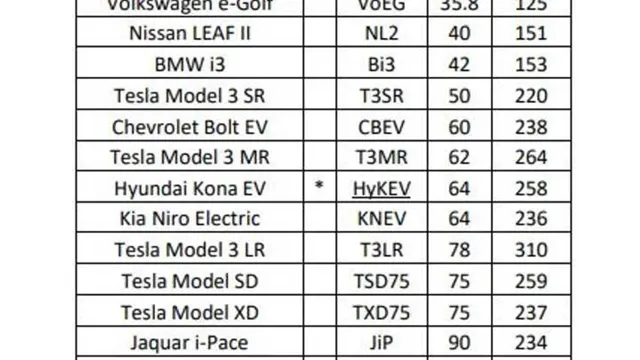Electric vs Hydrogen Cars: Which is the Future of Sustainable Transportation?
Electric cars and hydrogen cars have been pitted against each other as the future of eco-friendly transportation. Both vehicles are known for their low emissions and high fuel efficiency, but which one is better? While both have their advantages and disadvantages, it ultimately comes down to personal preference and priorities. In this blog, we will explore the differences between electric cars and hydrogen cars, weighing the pros and cons of each.
Whether you’re a car enthusiast or simply interested in the latest green technology, this article will help you make an informed decision on which vehicle is right for you. So sit back, buckle up, and let’s dive into the world of electric cars and hydrogen cars.
Overview of Battery Electric Cars and Hydrogen Fuel Cell Cars
When it comes to choosing between battery electric cars and hydrogen fuel cell cars, there are a few key differences to consider. Battery electric cars rely solely on electricity stored in a battery, while hydrogen fuel cell cars generate electricity through a chemical reaction between hydrogen and oxygen, producing only water vapor as a byproduct. One benefit of battery electric cars is that they are generally more widely available and have more charging infrastructure in place.
However, hydrogen fuel cell cars may have a longer range and can refuel relatively quickly, whereas battery electric cars often require more time to recharge. It all comes down to personal preference and driving habits, but both options offer a cleaner and more sustainable alternative to traditional gasoline-powered vehicles.
Battery Electric Cars: Advantages and Limitations
Battery Electric Cars Battery electric cars have been growing in popularity due to their advantages over traditional internal combustion engine cars. Firstly, electric cars produce zero emissions, making them environmentally friendly and reducing air pollution. Secondly, they are more economical as the cost of electricity used for charging is less than the cost of gas.
Additionally, electric cars have fewer moving parts, resulting in less maintenance. However, battery electric cars come with certain limitations such as limited driving range, long charging times, and high purchase prices. An alternative to battery electric cars is hydrogen fuel cell cars.
These vehicles use chemical reactions between hydrogen and oxygen to generate electricity, producing only water as a byproduct. While hydrogen fuel cell cars have longer driving ranges, they still face challenges with a lack of infrastructure for refueling and high production costs. Despite their limitations, both battery electric and hydrogen fuel cell cars are paving the way towards a more sustainable and eco-friendly future.
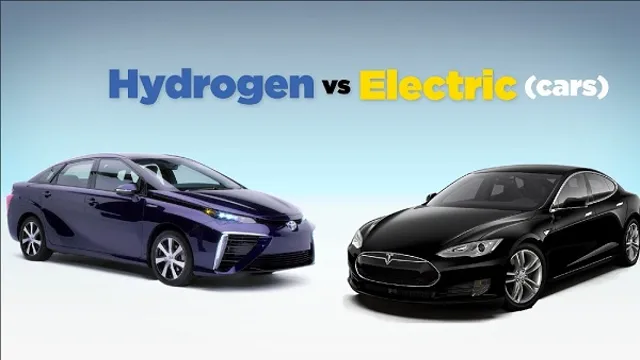
Hydrogen Fuel Cell Cars: Advantages and Limitations
When it comes to clean energy vehicles, there are two primary options: battery electric cars and hydrogen fuel cell cars. Battery electric cars rely on a large battery to power an electric motor, while hydrogen fuel cell cars use hydrogen as fuel to generate electricity in order to power the motor. The advantage of hydrogen fuel cell cars is that they produce only water as a byproduct, making them zero-emission vehicles.
Additionally, refueling a hydrogen fuel cell car takes only a few minutes, similar to refueling a traditional gasoline-powered car. However, the main limitation of hydrogen fuel cell cars is the lack of infrastructure for producing, transporting, and dispensing hydrogen fuel. While battery electric cars can be charged at home or at public charging stations, hydrogen fuel cell cars require specialized hydrogen fueling stations, which are few and far between.
So while hydrogen fuel cell cars have many potential advantages, the lack of infrastructure is a significant hurdle to their widespread adoption.
Environmental Impact
When it comes to the environmental impact of battery electric cars vs. hydrogen fuel cell cars, there are a few key differences to consider. While both types of vehicles emit zero emissions when being driven, the production and distribution of their power sources has different environmental implications.
Battery electric cars rely on a rechargeable battery, which is typically powered by electricity from the grid. While this electricity may come from a variety of sources (some of which may be dirty or unsustainable), the carbon footprint of charging the battery can be reduced by using clean energy sources like solar or wind. Hydrogen fuel cell cars, on the other hand, rely on hydrogen fuel to power an electric motor.
While hydrogen is a clean-burning fuel, it is difficult and energy-intensive to produce, transport, and store. Additionally, most commercial hydrogen is currently produced using fossil fuels, which can negate some of the environmental benefits of using a fuel cell car. Overall, both types of vehicles have the potential to reduce emissions and improve air quality, but there are important considerations to keep in mind when comparing their environmental impact.
Battery Electric Cars vs Hydrogen Fuel Cell Cars: CO2 Emissions
When it comes to the environmental impact of battery electric cars and hydrogen fuel cell cars, there are several factors to consider. While both types of vehicles produce no direct emissions during operation, the production and disposal of their power sources have varying effects on the environment. Battery electric cars rely on electricity from the grid, which may come from fossil fuels and contribute to greenhouse gas emissions.
However, the use of renewable energy sources such as wind and solar can significantly reduce the carbon footprint of EVs. On the other hand, hydrogen fuel cell cars produce only water as a byproduct, but the production of hydrogen often requires natural gas, which can emit greenhouse gases. Additionally, the infrastructure required to produce, transport, and store hydrogen is still in its infancy, making it less accessible and more expensive than charging an electric vehicle.
At the end of the day, both options have their pros and cons, but with continuous advancements and innovations in technology, we hope to see a more sustainable and eco-friendly future for transportation.
Battery Electric Cars vs Hydrogen Fuel Cell Cars: Waste Reduction
When it comes to environmental impact, it’s hard to say which is better between battery electric cars and hydrogen fuel cell cars. Both options offer benefits in terms of waste reduction. Battery electric cars run on electricity stored in a battery, which means they don’t produce any emissions themselves.
This makes them a great option for reducing air pollution and greenhouse gas emissions. On the other hand, hydrogen fuel cells produce only water as a byproduct, making them equally environmentally friendly. The real difference comes down to where the energy comes from to create the electricity or hydrogen.
In the case of battery electric cars, the electricity might come from a mix of sources including renewable energy like solar or wind, or potentially coal or natural gas power plants. Hydrogen fuel cells currently rely on natural gas as a source. However, the environmental impact of extracting and transporting natural gas raises concerns about the overall benefit of hydrogen fuel cell cars.
Ultimately, it’s important to consider the entire lifecycle of both options before making a decision on which one is best for the environment.
Cost Analysis
When it comes to choosing between battery electric cars and hydrogen fuel cell cars, a cost analysis can help determine which option is the most economical. While battery electric cars are currently less expensive to purchase than their fuel cell counterparts, there are other factors to consider when it comes to overall costs. Battery electric cars require frequent and lengthy charging times, and their range is limited, which means owners may need to invest in expensive home charging infrastructure or deal with the inconvenience of finding public charging stations.
On the other hand, hydrogen fuel cell cars offer longer driving ranges and fast refueling times, but the infrastructure for refueling is still developing and therefore, limited in many areas around the world. So, while battery electric cars may have a lower upfront cost, the overall lifetime cost of ownership may end up being more expensive than a hydrogen fuel cell car. It ultimately comes down to the needs and preferences of each individual consumer, as well as the local availability of charging and refueling infrastructure.
Battery Electric Cars vs Hydrogen Fuel Cell Cars: Initial Cost
When it comes to the initial cost of purchasing a vehicle, battery electric cars (BEVs) tend to be less expensive than hydrogen fuel cell cars (HFCCs). This is mainly due to the fact that BEVs use readily available lithium-ion batteries, while HFCCs require complex and expensive fuel cell technology. While BEVs do require the installation of a charging station at home, this cost can be offset by the lower price of the car itself.
On the other hand, HFCCs require specialized hydrogen fuel stations, which are currently limited in availability and can be costly to install. Moreover, companies like Tesla are working to reduce the overall cost of BEVs, making them a more affordable and accessible option for consumers. However, it’s important to note that the total cost of ownership of a vehicle should also include factors such as fuel costs, maintenance, and potential incentives or tax credits.
So while the initial cost of a BEV may be lower, the overall savings over time may vary depending on individual circumstances.
Battery Electric Cars vs Hydrogen Fuel Cell Cars: Cost of Fuel and Maintenance
When it comes to comparing battery electric cars and hydrogen fuel cell cars, one crucial factor to consider is the cost of fuel and maintenance. In terms of fuel cost, battery electric cars have the upper hand because electricity is generally cheaper and more widely available than hydrogen fuel. Moreover, battery electric cars require less maintenance as they have fewer moving parts and do not require frequent maintenance checks for their fuel cells.
Thus, in the long run, battery electric cars are a better investment for those who want lower operational costs. However, it’s important to note that hydrogen fuel cell cars have clean emissions, and the technology is still evolving, so there is potential for better efficiency and cost reductions in the future.
Future Outlook
When it comes to the future of automobiles, there are two main contenders for the title of top alternative fuel: battery electric cars and hydrogen fuel cell cars. Battery electric cars have gained popularity in recent years, thanks in part to advances in battery technology that have increased their range and made them more practical for everyday use. On the other hand, hydrogen fuel cell cars use hydrogen gas to generate electricity, emitting only water vapor as their byproduct.
While both technologies have their pros and cons, some experts believe that hydrogen fuel cell cars may have the edge in the long run, due to their ability to refuel more quickly and their potential for use in commercial and industrial settings. Ultimately, the battle between battery electric cars and hydrogen fuel cell cars will depend on a variety of factors, including technological advancements, government policy, and consumer demand.
Battery Electric Cars vs Hydrogen Fuel Cell Cars: Industry Trends and Developments
As the automotive industry continues to advance, the future outlook for battery electric cars and hydrogen fuel cell cars appears to be promising. While battery electric cars have been dominating the market in recent years, hydrogen fuel cell cars are also gaining momentum. While battery electric cars have a clear advantage when it comes to convenience and accessibility, with charging stations becoming more widespread, hydrogen fuel cell cars offer advantages such as longer driving ranges and quicker refueling times.
As hydrogen fuel cell technology continues to develop and become more cost-effective, it’s likely that we will see more options for consumers looking to make the switch to clean energy vehicles. In the end, the future of the automotive industry will depend on a number of factors, from advancements in technology to changes in consumer preferences, but it’s clear that both battery electric cars and hydrogen fuel cell cars will play a prominent role in shaping the transportation landscape for years to come.
Conclusion
After much debate and research, it seems that the choice between battery electric cars and hydrogen fuel cell cars ultimately comes down to personal preference and individual needs. Both technologies have their strengths and weaknesses, but one thing is certain: the future of transportation is looking cleaner and greener. So, whether you opt for the instant torque and convenience of an electric vehicle or the longer range and faster refueling times of a hydrogen fuel cell vehicle, the good news is that you’ll be doing your part to reduce emissions and make the world a better place.
Either way, the choice is yours to power up your vehicle with clean energy and drive towards a sustainable future.”
FAQs
What is the difference between battery electric cars and hydrogen fuel cell cars?
Battery electric cars rely on electricity stored in rechargeable batteries to power an electric motor, while hydrogen fuel cell cars generate electricity through a chemical reaction between hydrogen gas and oxygen from the air.
Which type of car is more efficient: battery electric or hydrogen fuel cell?
It depends on how the electricity used by battery electric cars is generated. If the electricity comes from renewable sources such as wind or solar power, battery electric cars are more efficient. If the electricity comes from fossil fuels like coal, hydrogen fuel cell cars are more efficient.
How long does it take to recharge a battery electric car compared to refueling a hydrogen fuel cell car?
Recharging a battery electric car can take several hours, depending on the size of the battery and the charging station. Refueling a hydrogen fuel cell car takes just a few minutes, similar to refueling a gasoline car.
Are battery electric cars or hydrogen fuel cell cars more expensive?
Currently, hydrogen fuel cell cars are more expensive to produce and purchase than battery electric cars. However, the cost of both types of cars is expected to decrease as production increases and technology advances.
